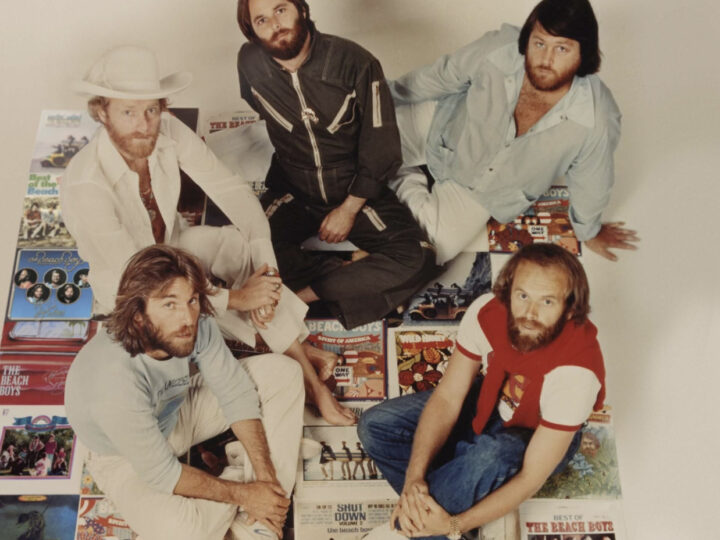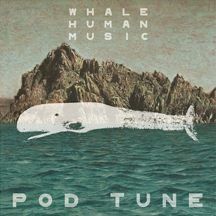
Breaking down the breakdown song
I know the whole ga-ga creampuff period over the most recent Of Montreal record is over, but I can’t get one of those songs out of my mind. I know it’s kind of a heavy tune, and things have been going rather well of late, but “The Past is a Grotesque Animal” has got me in its claws, something that happens rather more infrequently than it used to and which thereby slams into the heart with a heightened sense of pregnant insight. At nearly twelve minutes, the beast is by far the longest song on the record, whose ungainly name, Hissing Fauna, Are You the Destroyer?, sounds like the surprised outcry of a stoner who has just stepped on Kitty. And this song sounds like the claws.
The opening is an Eno fan’s echo chamber: skronky Fripp guitar, weird frog noises, a “Baby’s On Fire” beat. Then a full Neu-worthy minor key pulse kicks in, and it is tense enough to drive without dimunition or variation for longer than a YouTube video and still not lose its anxiety and drive. There are no choruses or bridges, and frontman Kevin Barnes just keep topping himself with lyrics that manage to be both raw and insightful. They sound manic, but they also sound true. Lots of the album’s words are uncomfortably intimate for me, as if Barnes has recorded my own brain. I am definitely hearing the man on “Heimdalsgate Like A Promethean Curse,” when he addresses his own neurochemistry: “Come on mood shift, shift back to good again, come on, be a friend.” And in “The Past is a Grotesque Animal,” he is inside the mind of a man whose relationship woes have made him implode and explode at the same time. “I need you here but not here too.”
I don’t read much music gossip, so almost everything I know about the backstory for this recordKevin Barnes moves to Norway with wife and probably a kid, gets depressedI learned from the record itself. “I fell in love with the first cute girl that I met / Who could appreciate George Bataille,” he declares in a clipped Colin Newman art-punk voice early on. I haven’t plugged “Barnes current marital status” into Google, but the fact that I would even consider it tells you a lot about this tune.
On the surface it sounds like a breakup song, but its really more of a breakdown songa disturbingly articulate slide down the slippery slope. At about four minutes into the rant, after the desperate claim that “at least I author my own disaster,” Barnes’ voice starts to crack as he zeroes in on this line:
The mousy girl screams violence violence
The mousy girl screams violence violence
She gets hysterical.
Of course its Barnes who’s getting hysterical here, his voice breaking and shredding. He’s losing it, like LCD Soundsystems’ James Murphy sings about losing his edge, only here Barnes is losing his sanity along with his cleverness and cool. And its just then, when you think the guy is gonna puke or something, that the silly “ooh woo” chorus steps in, adding an element of perverse pop at just the moment a less savvy artist, striving for authenticity, would turn up the volume on raw power. But that’s why Barnes’ autobiography sinks in so deep, sounds so real.
“The Past is a Grotesque Animal” is as much an exorcism as a confession, private histrionics as public declaration. It captures the almost hallucinogenic horror of heavy lover spats, where spoken words mutate and double back so fast you are always carrying on a few conversations at once, most of them silently. One of them is with yourself, as the eternal void of futurity and futility opens up, like when Barnes finds himself “searching for old selves while speeding forward through the plate glass of maturing cells.” Another conversation, of course, is with the spirit of What Remains Unsaid, an invisble angel who often seems to grow mightier and more mocking the more you try to concretize and explain. As Barnes has it: “None of our secrets are physical.”
Still, in the face of all the voids, in between words and in between bodies, the energetic fact of connection remains. Which is why I would not be surprised if Barnes is still tight, in reality and in his unraveled songself, with the cute Bataille fan. “But’chya know, no matter where we are, we’re always touching by underground wires,” he admits toward the end of the song. And then, Barnes, a true psychedelicist, manifests these secret astral threads with ectoplasmic sounda demented Jean Michel Jarre analog synth twister that goes on and on, wailing and whining, full of mad life.




